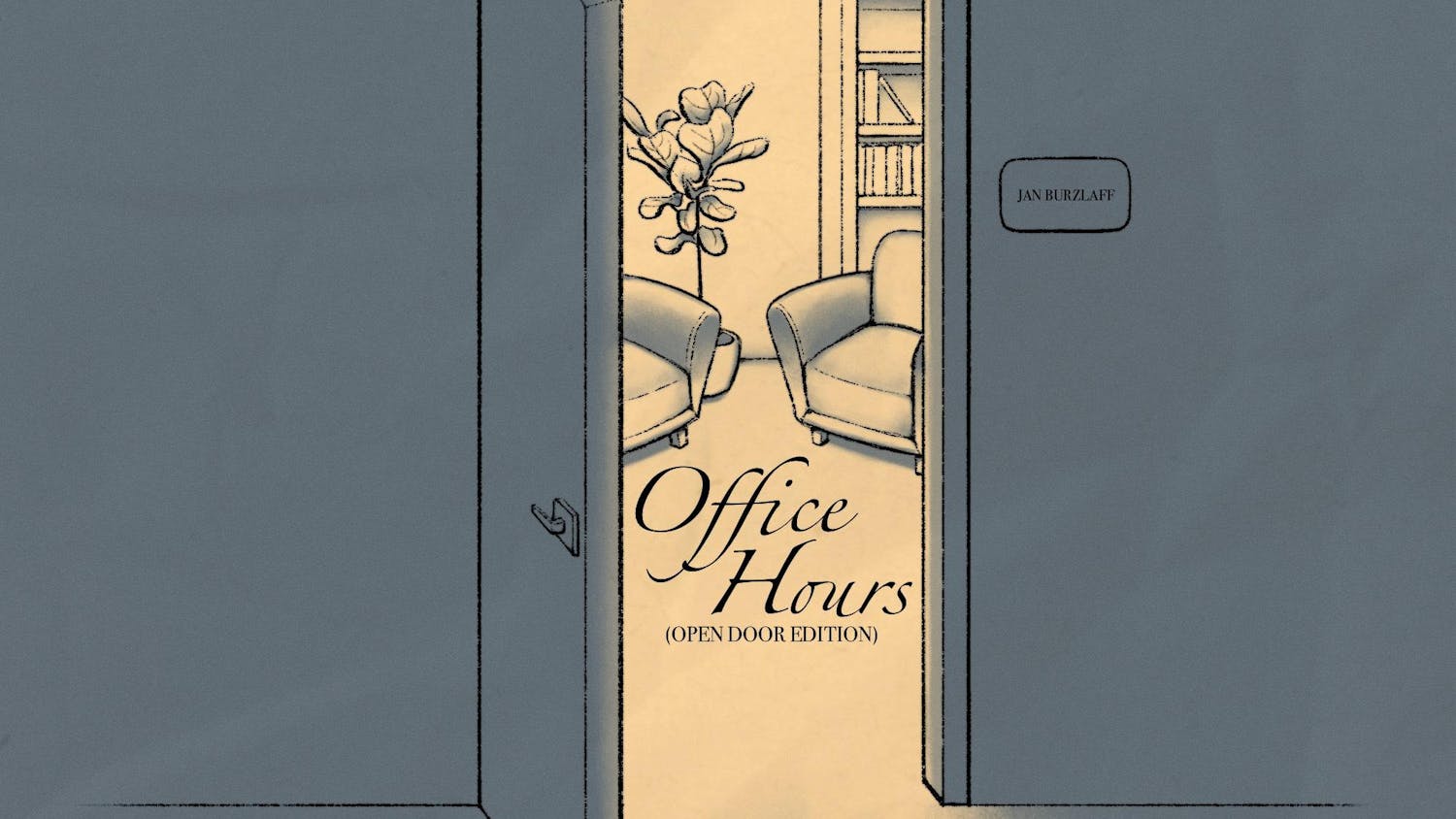In approximately 25 days, the day will finally come when the Class of 2025, clad in scarlet stoles, will cross the stage and leave not as fellow Cornellians, but as fellow alumni. As the bittersweet anticipation of freedom and the simultaneous impending doom of true adulthood march towards me, I can’t help but wonder the question that churns in all seniors’ heads: What did Cornell teach me?
My years as a student have strayed from what many may call the “conventional” college experience; I transferred into Cornell Arts and Sciences as a sophomore, took a gap semester in 2023 spring, and just earlier this semester, decided I wanted to graduate early this summer instead of completing all eight semesters of university. As a Literatures in English major who is also embarking on the pre-medical track, my past two years have been spent juggling between chemical equations and Shakespeare quotes — a rather precarious performance.
There are many days when I have sat and pondered how my college experience might have been different had I followed the more traditional path: Would I have stayed in touch with freshmen friends? How would I have adjusted to Cornell if I had spent my first year here? What would my workload be like if I pursued a different career path? What memories would I have made if I had not taken a gap semester? Am I missing out on the ultimate college experience, and am I not making the most out of my years as a Cornellian?
In a school of approximately 16,000 undergraduates plopped amidst isolated mountains in upstate New York –– which is always concerningly cloudy and cold for six months of the year –– it is easy to fall victim to this epidemic of second-guessing, anxiety and loneliness. Throughout high school, we are promised a glorious, hopeful urban legend: College will be the best four years of our lives. Yet when you receive your first, second and third 64 on an organic chemistry exam, lose friends, doom scroll alone in your bed on a Friday night, miss your 9 a.m. class with required attendance, suffer from a mysterious cold for a week, trudge through a full day after sleeping three hours or find yourself counting spare dollars by the end of the semester, you may feel the piercing betrayal of a broken promise — and perhaps even more devastatingly — of failure.
Such is the reality of college: It is actually not the peak of your life, nor should it be. The expectation that these four years will secure the rest of your future or unlock untapped interests are mere advertisements for applying students and overwhelming burdens upon current undergraduates. That is not to say, of course, that such things are impossible, but the guise of a college diploma as a savior and a solution to all worldly and philosophical dilemmas weaves a toxic blanket of competition, self-hatred, disappointment and, ultimately, a fear of failure.
I wouldn’t say I’ve found a home here on top of the hill. Don’t get me wrong — I’ve rolled in laughter with friends in the library, slipped out at midnight for froyo from Jason’s, belted godforsaken songs at karaoke, discovered some of my favorite books from my English classes, napped on the sun-dripping Slope, indulged in CTB cheesecakes and conversed happily with professors — just to name a handful of irreplaceable memories from my time at Cornell. However, I find Cornell to be something far from a comfortable home: It is instead a place of both turmoil and peace, anger and laughter, community and solitude, failure and success. While it houses some of my favorite stories and experiences, it also holds some of my worst moments of isolation, self-doubt and mental burnout.
Yes, it is true that once we exit the gates of Cornell, the rest of the seniors and I will have to face much more dire challenges: merciless bills, grueling jobs, post-graduate parents and existential crises here and there. Yet I believe that our four years have prepared us for these moments; we are no longer 18-year olds waiting for the “peak” of our lives to come to us, but are burgeoning adults — armed with our own definitions of identity and independence — who can now claim and sculpt our own “primes.”
So if someone were to ask me, “What did you learn from Cornell?” I would respond that it had taught me what exclusion, loneliness and failure are, and therefore, how I am an agent of my own experiences. I would say that I am glad that my four years here were not the best years of my life because they have prepared me for all that is to come. And so, I end my column with this: If Cornell has not fulfilled all of your fantastical daydreams, do not let expectations dictate the future — in this case, I truly do believe that the grass is greener on the other side.
The Cornell Daily Sun is interested in publishing a broad and diverse set of content from the Cornell and greater Ithaca community. We want to hear what you have to say about this topic or any of our pieces. Here are some guidelines on how to submit. And here’s our email: associate-editor@cornellsun.com.











